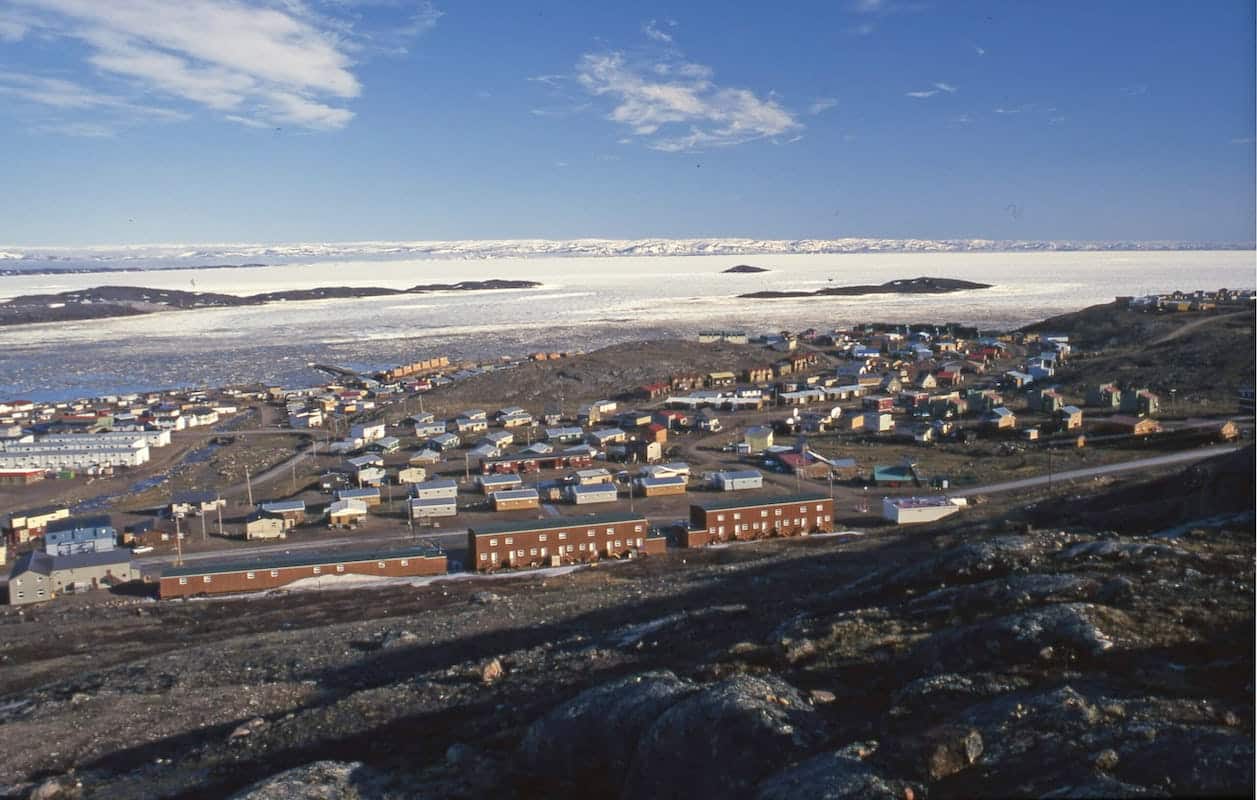Arctic Winter College 2021: Policy Briefs #3 - Community Wellbeing

Iqaluit in Nunavut, Canada. Iqaluit – called Frobisher Bay until 1987 – is the territorial capital and the largest community of the Canadian territory of Nunavut. Photo: Peter Prokosch
The Arctic Institute Arctic Winter College 2021
- Arctic Winter College 2021: Policy Briefs #1 – Infrastructure
- Arctic Winter College 2021: Policy Briefs #2.1 – Marine and Maritime Issues 1
- Arctic Winter College 2021: Policy Briefs #2.2 – Marine and Maritime Issues 2
- Arctic Winter College 2021: Policy Briefs #3 – Community Wellbeing
Through a partnership with the National Science Foundation-funded Migration in Harmony Research Coordination Network and the Ecologic Institute, The Arctic Institute is publishing a series of briefs on Arctic migrations and mobilities written by Fellows of the 2021 Arctic Winter College. The Arctic Winter College brought together 60 emerging leaders and experts from across the world for 10 weeks in a free series of web-based seminars, the videos of which can be viewed on YouTube here. The program builds a lasting, policy-oriented network of Arctic professionals to strengthen communication between peoples and nations, scientific disciplines, policy areas, and across the science-policy interface to improve collaborations, research, and decision-making in the Arctic. Weekly webinars focused on the theme “Arctic on the Move.” Urbanization, globalization, and the impacts of climate change are activating the simultaneous migrations of species, ecosystems, settlements, and cultures across Arctic coastlines in new and unpredictable ways. Each of these intersecting mobilities challenge the quality of life, sustainable development, and environmental health of the circumpolar north. Participants engaged with Arctic researchers, traditional knowledge holders, and practitioners in a variety of fields related to movement to deepen their understanding of a rapidly changing region and its global connections.
This week’s publication is our first collection of policy briefs on Community Wellbeing in the North American Arctic. Climate change is drastically impacting the Arctic by altering its landscape and disrupting environmental systems. These changes affect community well-being, food security, and infrastructure in the North American Arctic region and make the residents more vulnerable to disasters and long-term adverse effects. Areas adversely affected include medical infrastructure, cybersecurity, marine ecological sustainability, food and health services, fisheries, and existing infrastructure, primarily low-lying, flood-prone infrastructure.
This policy briefer will explore these subjects; climate change impacts, how communities will need to adapt to the growing threat of a changing Arctic and make broad recommendations for reducing risks, with contributions from Chloe Nunn, Susana Hancock, Sasha Leidman, Katherine Janoski, and Audrey E. Reinert.